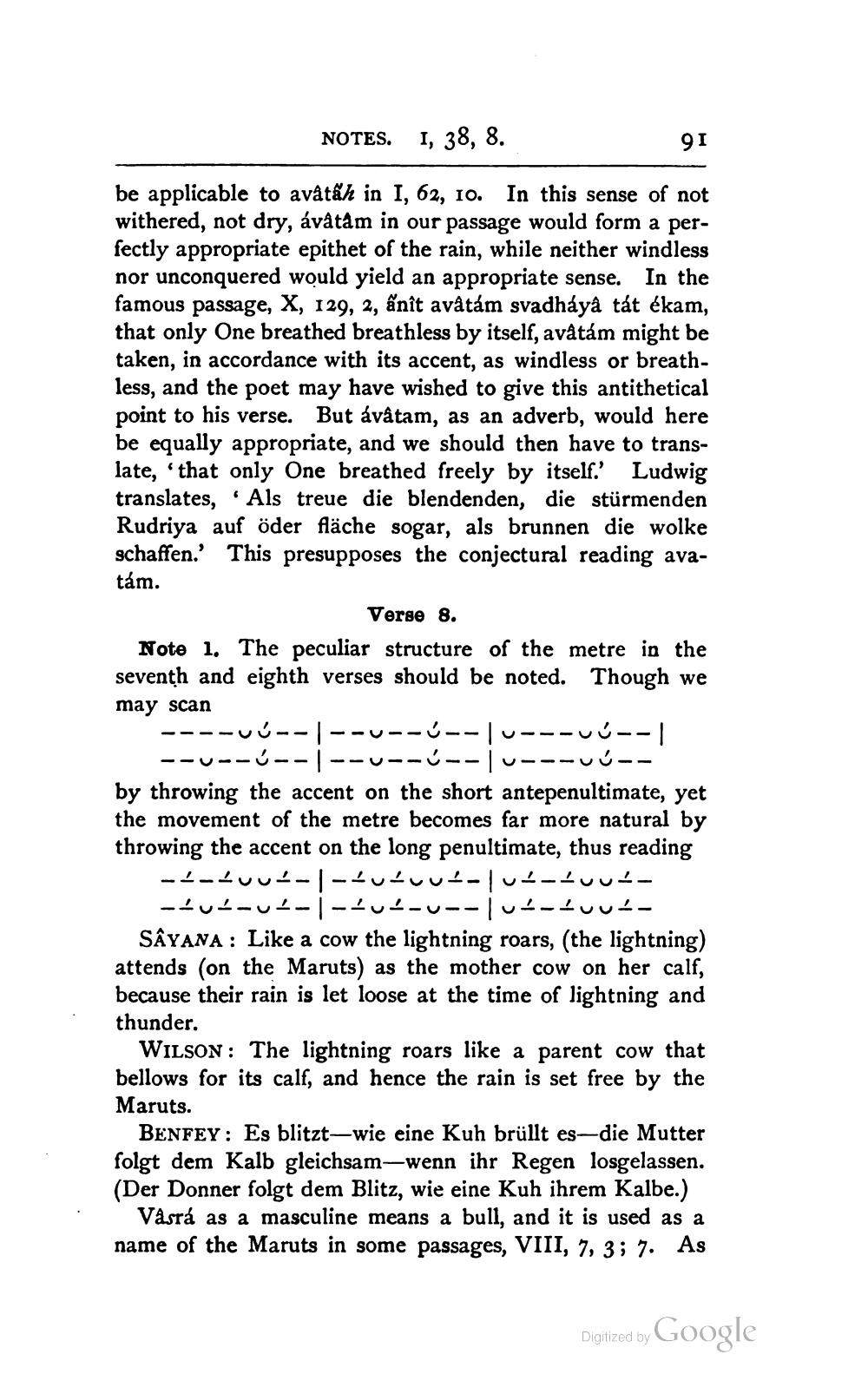________________
NOTES. I, 38, 8.
be applicable to avâtah in I, 62, 10. In this sense of not withered, not dry, ávâtâm in our passage would form a perfectly appropriate epithet of the rain, while neither windless nor unconquered would yield an appropriate sense. In the famous passage, X, 129, 2, anît avâtám svadháyâ tát ékam, that only One breathed breathless by itself, avâtám might be taken, in accordance with its accent, as windless or breathless, and the poet may have wished to give this antithetical point to his verse. But ávâtam, as an adverb, would here be equally appropriate, and we should then have to translate, that only One breathed freely by itself.' Ludwig translates, Als treue die blendenden, die stürmenden Rudriya auf öder fläche sogar, als brunnen die wolke schaffen.' This presupposes the conjectural reading avatám.
Verse 8.
Note 1. The peculiar structure of the metre in the seventh and eighth verses should be noted. Though we may scan
-|--20‒‒‒‒
1-2--2-
|--2---
--2---2|--2--2--|--2--0-
T
91
by throwing the accent on the short antepenultimate, yet the movement of the metre becomes far more natural by throwing the accent on the long penultimate, thus reading
-2-100-|-±0 ±~~÷-10-2002--~--~--|-÷U÷-~--|U÷‒÷~~÷
SAYANA: Like a cow the lightning roars, (the lightning) attends (on the Maruts) as the mother cow on her calf, because their rain is let loose at the time of lightning and thunder.
WILSON: The lightning roars like a parent cow that bellows for its calf, and hence the rain is set free by the Maruts.
BENFEY: Es blitzt-wie eine Kuh brüllt es-die Mutter folgt dem Kalb gleichsam-wenn ihr Regen losgelassen. (Der Donner folgt dem Blitz, wie eine Kuh ihrem Kalbe.)
Våsrá as a masculine means a bull, and it is used as a name of the Maruts in some passages, VIII, 7, 3; 7. As
Digitized by Google




